Alexander Wilde escaped Hitler's regime in Austria. Now the Vermont man turns 100.
SOUTH BURLINGTON — On May 23, Alexander Wilde plans on digging into a big bowl of whipped cream. No cake or ice cream — just the whipped cream. A dessert that requires minimal chewing is ideal for Wilde's teeth, as he's turning 100 years old.
Wilde plans to celebrate his 100th birthday with his children and grandchildren, as well as his wife Barbara, who lives with him at a senior living center in South Burlington. Wilde was born in Vienna, Austria, to a Jewish family in 1923, and lived through the early parts of Adolf Hitler's rule before finding a way to escape.
“Terrorism is still on the horizon. Antisemitism has never left us," Wilde said. "I can only hope that for the little time that I have left and my wife has left in this life, that we have earned a good remembrance. That we would like to hope that future events will be more favorable.”
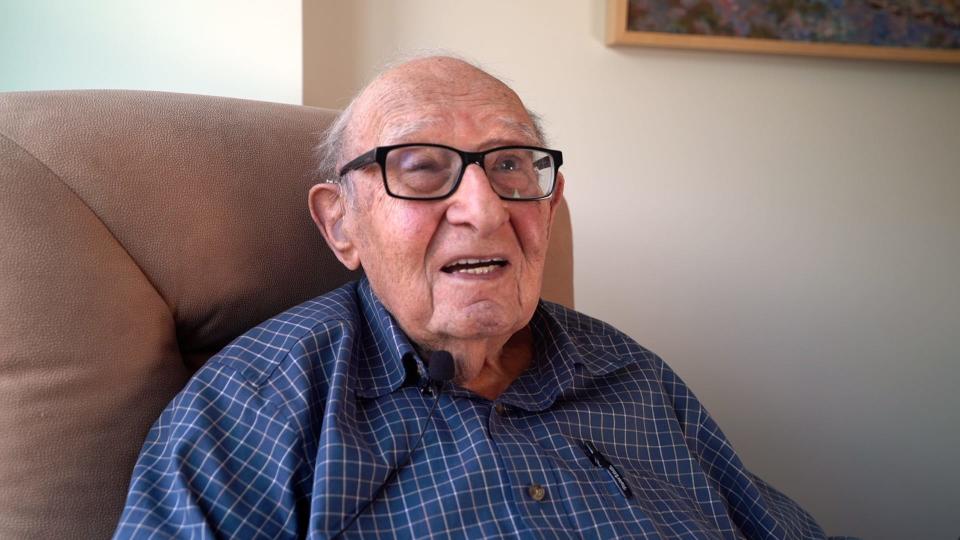
Now retired in Vermont, Wilde shares his life story at middle schools, high schools, churches, and synagogues across New England. By sharing his story, Wilde hopes that younger generations can learn from the past and create a better future.
"There's still tremendous discrimination in the world," Wilde said. "We hope that this will spark our children to lead forward for a brighter future."
'We can't solve this on our own': Inside Robert Kraft's campaign to combat antisemitism
What life was like for a Jewish boy under Hitler's rule
Wilde was born in Austria on May 23, 1923. He was an only child whose mother was a physician and father was a lawyer.
“We lived a comfortable life," Wilde said, "until the days came when Hitler marched into Austria and all freedoms stopped, and horror followed."
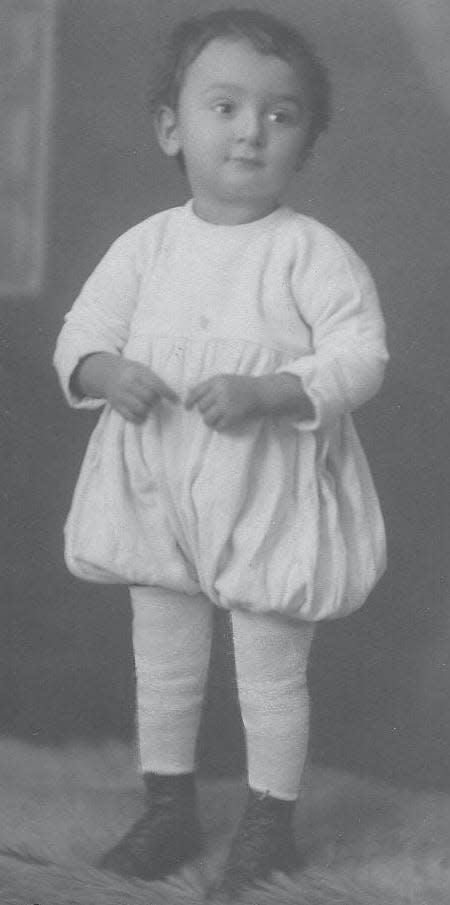
In 1938, when German Nazi troops took control over Vienna, Wilde and his family had their passports stamped with the letter "J" for "Jude," the German word for "Jewish." Soon after, Wilde was kicked out of his high school for being Jewish.
Months later, stormtroopers knocked on the door to Wilde's home, telling his family that they needed to immediately vacate the house. Wilde and his parents escaped through a side door and fled to a distant relative's house in a Jewish enclave of Vienna. Overnight, Wilde went from living in a comfortable, upper-class home to a one-room apartment.
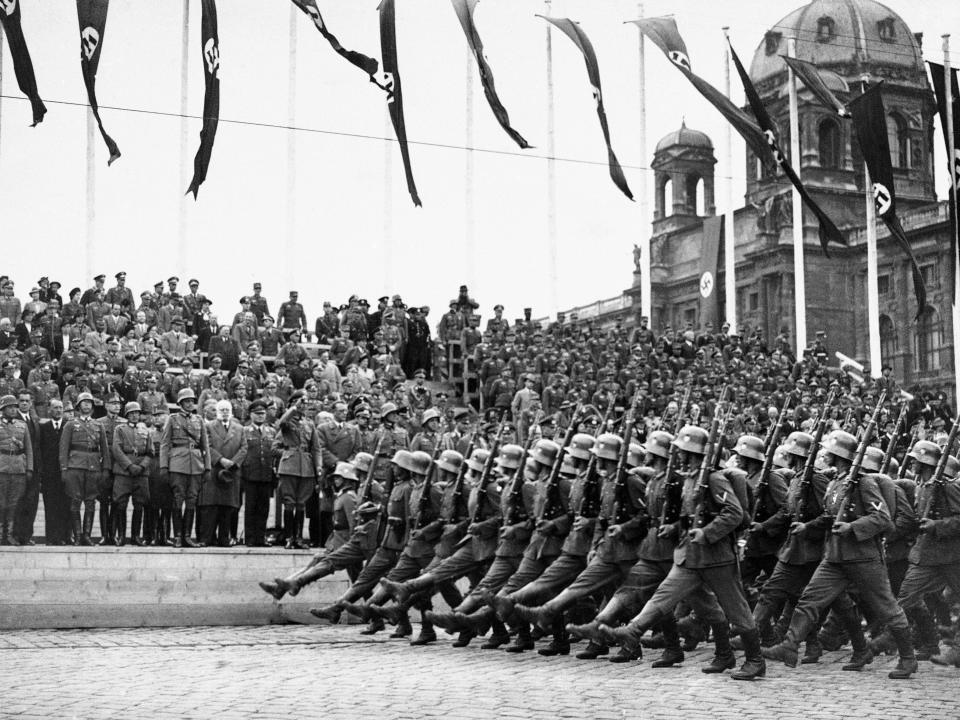
On Nov. 9 and 10, 1938, a wave of antisemitic violence known as "The Night of the Broken Glass" swept Germany, Austria, and areas of Czechoslovakia that were occupied by German troops. Nearly all of the approximately 100 synagogues and places of Jewish worship in Vienna were burned to the ground by Nazi troops and antisemitic citizens, according to the World Holocaust Remembrance Center.
"It was utter terror to see the synagogues burn," Wilde said.
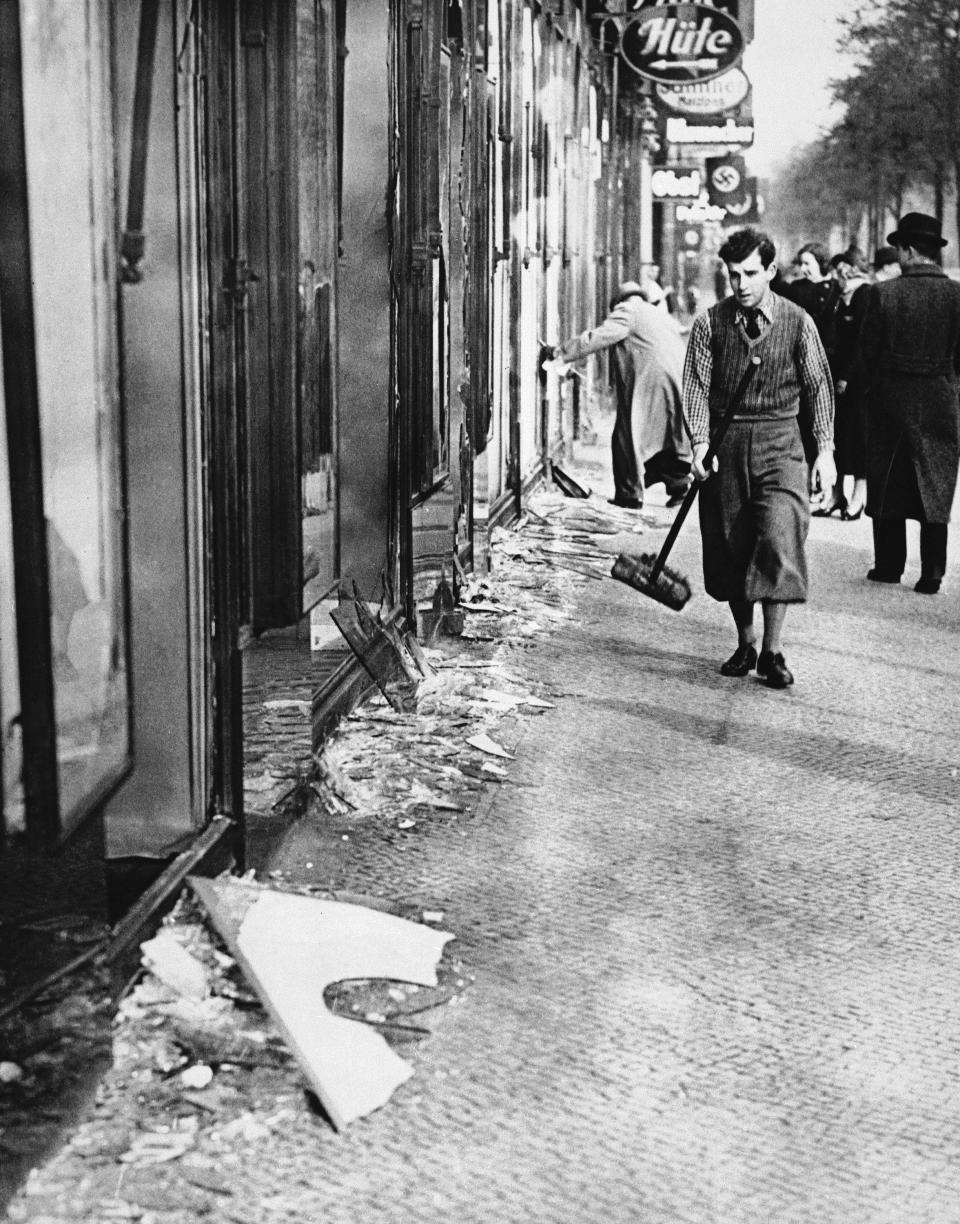
From Dachau concentration camp, his father warns 'get the child out'
On Nov. 10, Wilde's father was returning home from his job in a shoe store when a stormtrooper grabbed him and threw him in a truck. A week later, Wilde's father was sent to Dachau concentration camp.
The first letter that Wilde's mother received from her husband read, "Make every effort to get the child out."
An opportunity came in December when the British government was persuaded by Quakers and other activists to implement The Kindertransport. This program allowed about 10,000 predominantly Jewish children from Austria, Germany, and Czechoslovakia to escape to Britain on special visas.
On Dec. 10, 1938, Wilde boarded a Britain-bound train with 500 other young children. Of the 10,000 children rescued by The Kindertransport, only about half ever saw their parents again, according to the publication The Conversation.
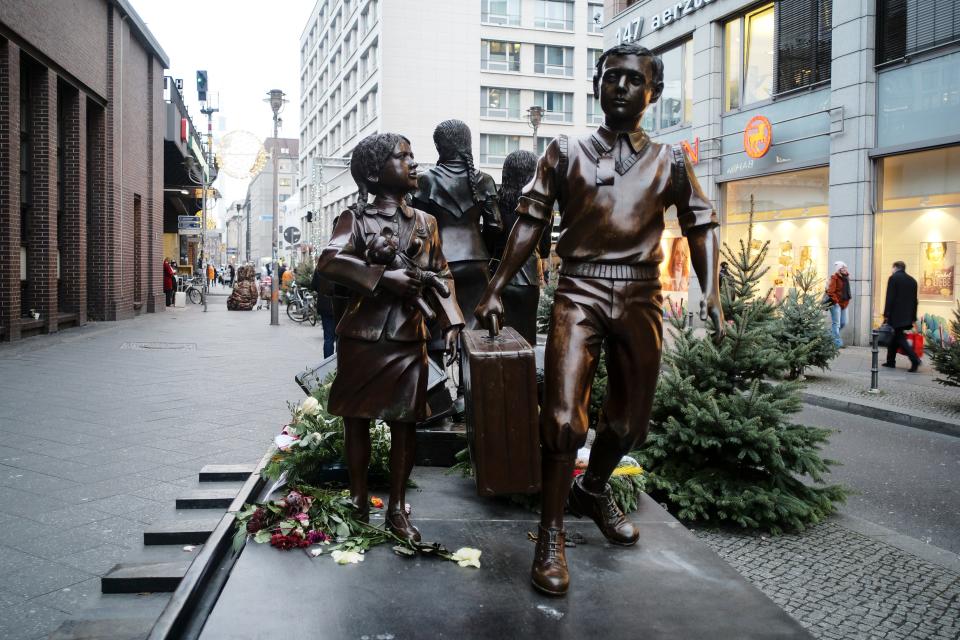
A Scottish roofer helps Wilde's parents get a visa to China
Upon arriving in England, Wilde was placed in a summer camp that was closed for the winter, sleeping in a frozen cabin without heat. The day after Christmas, good fortune met Wilde when he was sent to Edinburgh, Scotland, to be adopted by a retired roofing contractor named Christian Ettrup.
Ettrup figured out that if he bought Wilde's parents tickets to Shanghai, China, the Chinese government would give them a visa without a waiting period. The plan worked. Wilde's mother went to the Gestapo with the travel information and got her husband released. In those days before the war started, the Nazis were still willing to release men from concentration camps if they were leaving the country.
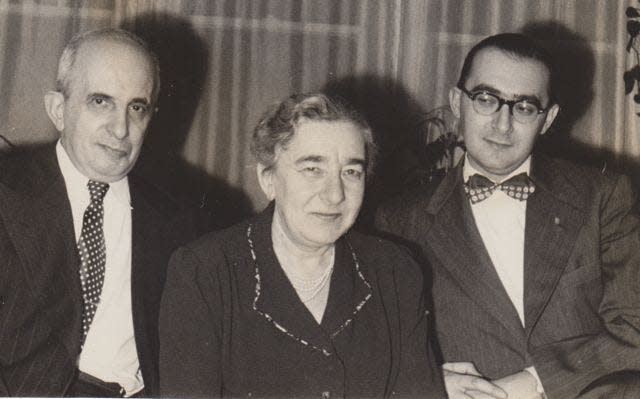
Wilde's father was released from Dachau in April of 1939.
"He was literally a broken man; he looked drawn and starved; grey; and not the same man we saw and knew just half a year earlier," Wilde said.
Wilde's parents canceled the tickets to China and escaped to England, where Wilde was reunited with them in the summer of 1939.
On Sept. 1, 1939, Hitler invaded Poland, and two days later England and France declared war on Germany, signifying the start of World War II. The war made life increasingly difficult for Wilde and his parents, even as they lived in England.
Wilde family immigrates to the United States
By the summer of 1940, the British government decided to apprehend and intern all foreign-born men over the age of 14, in response to discovering that Germany had infiltrated Britain with spies disguised as Jewish refugees. Wilde and his father were arrested and sent to two different internment areas.
In the meantime, Wilde's mother arranged the documents for the three of them to immigrate to the U.S. The night before their ship set sail for New York City, the Wilde family was reunited at an air raid shelter in Liverpool, as the city was being bombed by Germany.
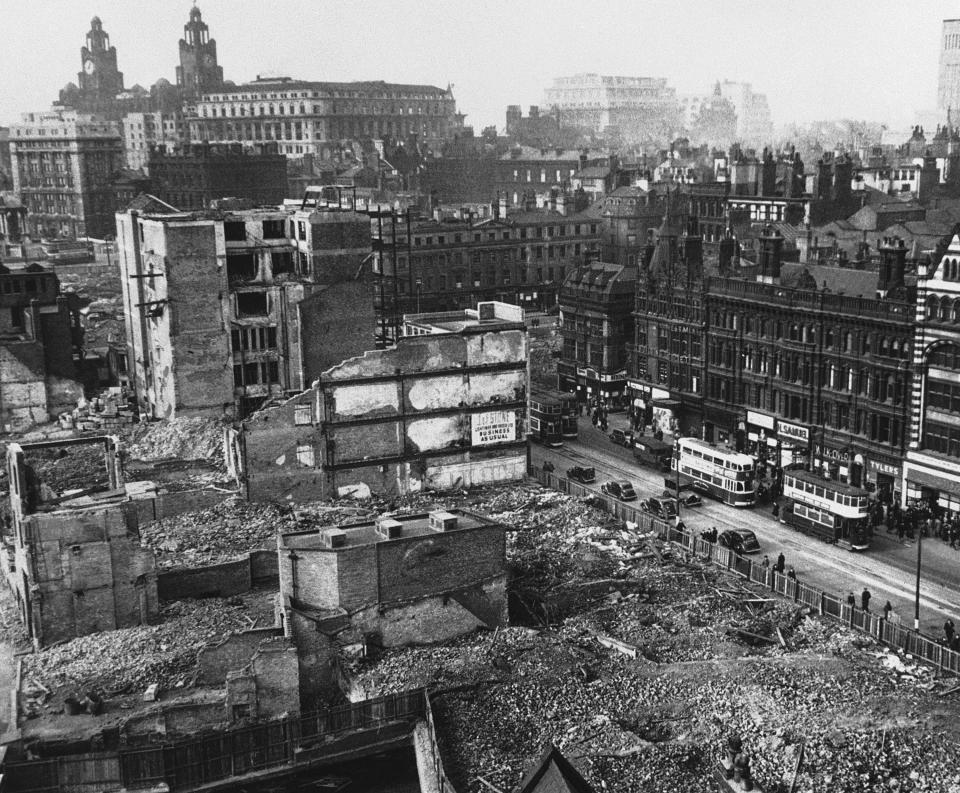
"It was a scary trip across the Atlantic, which was full of German submarines torpedoing British and other foreign ships," Wilde said.
The Wilde family arrived in New York City on Oct. 12, 1940.
'Same needs and hopes and dreams'
After immigrating to the U.S., Wilde attended school, worked at a metal production company, and eventually joined the U.S. Army in 1944. The Army stationed Wilde in Alaska and then Texas, going from temperatures as low as -46 degrees Fahrenheit to as high as 100 degrees.
Discharged in 1946 upon the end of the war, Wilde attended Roosevelt College (now called Roosevelt University) in Chicago and then earned a Master's Degree at the University of Chicago.
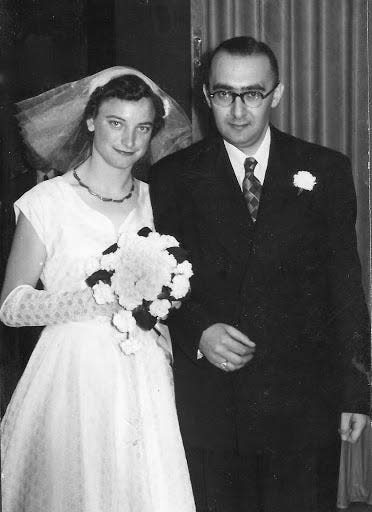
After graduating, Wilde got a job at the U.S. Department of Labor, through which he met a young woman named Barbara Schneider, who later became his wife.
"From the beginning that we were together, we shared the same needs and hopes and dreams," Wilde said.
Wilde and Schneider got married in 1954, and have been together for 69 years now, raising three children.
Sharing a story of survival after retiring in Vermont
Wilde worked at the health insurance company Blue Cross Blue Shield in Chicago for 38 years until he retired in 1990. After retiring, Wilde and Schneider moved to Maine to be closer to their daughter who lived there and then relocated to Vermont when their daughter's work brought her to the Green Mountain state in 2010.
“I love the philosophy of progressive liberalism," Wilde said about Vermont.
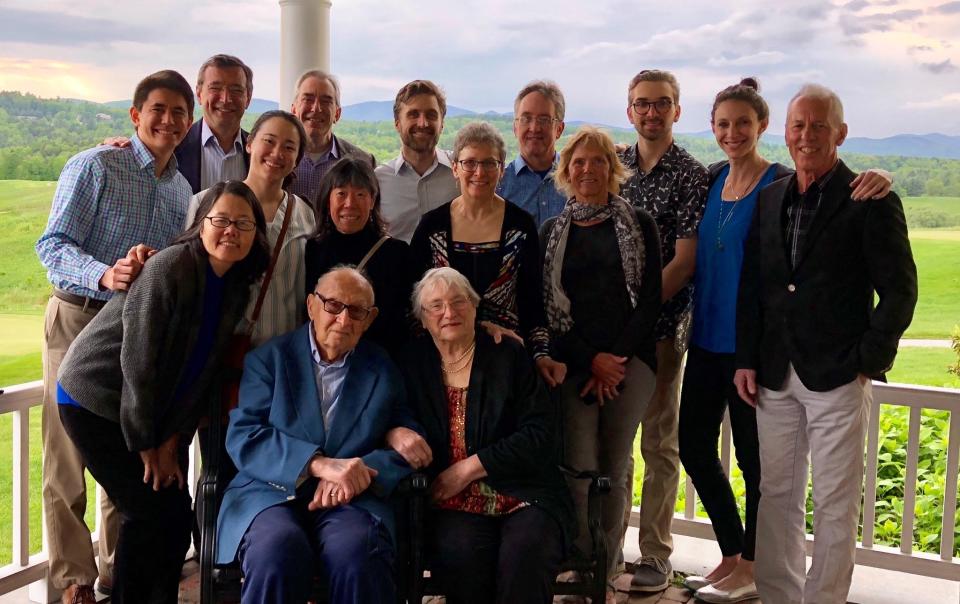
Returning to Gymnasium Wasagasse in Vienna
In 2006, Wilde was given an all-expenses-paid trip to Vienna to speak at the very school that had kicked him out for being Jewish 68 years prior, Gymnasium Wasagasse. The speaking event was organized by a teacher as part of a year-long curriculum about the Holocaust and the dark side of the school's past. There is now a granite plaque hanging in the school with Wilde's name on it that honors the students who were expelled.
"This was a very moving, supportive instance," Wilde said.
Since then, Wilde has given about 40 public speeches about his life story. Even now, at 100 years old, Wilde is still sharing his story with the public.
Note: Many of the facts from this story are from Janis Audet's research project on Wilde's life.
Contact April Fisher at amfisher@freepressmedia.com. Follow her on Twitter: @AMFisherMedia
This article originally appeared on Burlington Free Press: Holocaust survivor shares his story: What the Vermonter says at 100

